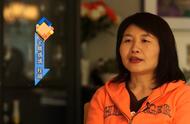1、将来时
本课主要复习之前学过的表将来的时态和句型,主要有:一般将来时、将来进行时和be going to do。如:
Debbie Hart is going to swim across the English Channel tomorrow.
Debbie's father will set out with her in a small boat.
Tomorrow he will be watching her anxiously as she swims the long distance to England.

| Debbie Hart is going to swim across the English Channel tomorrow. | 1)注意区分be going to do(侧重主观打算或意图)和will do。注意be going to do不是一般将来时,是一种表将来的句型。 2)swim across,横渡。 3)the English Channel,英吉利海峡。这是专有名称,所以首字母要大写。channel,海峡、海湾。 |
| She is going to set out from the French coast at five o'clock in the morning. | 1)set out,出发。相当于set off。 2)coast,海岸。 |
| Debbie is only eleven years old and she hopes to set up a new world record. | 1)注意eleven years old中的years old可以省略,但不能说eleven years(十一年,而不是十一岁)。 2)hope to do,希望做某事。 3)set up,创造、建立。 4)a world record,世界纪录。注意record作为名词时,重音在第一个音节,但用作动词时,重音在第二个音节。 |
| She is a strong swimmer and many people feel that she is sure to succeed. | 1)a strong swimmer,游泳健将、游泳能手。 2)feel,认为、觉得。相当于think或believe。 3)be sure to do,肯定会。 4)succeed,成功。注意如果要表达成功做成某事,其用法为:succeed in doing sth.。其名词形式为success。 |
| Debbie's father will set out with her in a small boat. Mr. Hart has trained his daughter for years. | 1)set out with her,和她一起出发。with sb.,表示伴随,意为“与某人一道、一起”。 2)train,训练、驯服。 3)for years,多年。for 一段时间,是完成时的标志性时间状语。 |
| Tomorrow he will be watching her anxiously as she swims the long distance to England. | 1)可提问学生为什么此处的watch要采用将来进行时(因为课文要强调的是Mr. Hart会一路照看着Debbie)。 2)anxiously,焦虑地、焦急地。源自anxious,其名词为anxiety。 3)注意“swim the long distance to 地点”,游过通往某地的长远距离。 |
| Debbie intends to take short rests every two hours. | 1)intend to do sth.,打算、意图做某事。intend的名词为intention。 2)take short rests,短暂休息。之所以用复数,是因为Debbie中途将不止作一次短暂休息。 3)every two hours,每两小时,即每隔一小时。注意“every 时间”和“every other 时间”的区别。可以考虑用数学公式来表达两者的区别,即:every=every other 1。 |
| She will have something to drink but she will not eat any solid food. | 1)have something to drink,喝点东西。 2)注意句中的but前最好加上逗号。 3)solid food,固体食物。solid,固体。可拓展液体和气体的表达,即liquid和gas。 |
| Most of Debbie's school friends will be waiting for her on the English coast. | 1)school friend,同学、校友。 2)可提问学生为什么本句话要采用将来进行时(因为Debbie的同学们明天都计划好一定会在英国海岸等她)。 |
| Among them will be Debbie's mother, who swam the Channel herself when she was a girl. | 1)注意本句话采用了倒装结构,目的是为了凸显句子的主语Debbie's mother,同时也是为了确保先行词Debbie's mother与其非限定性定语从句(who引导的从句)是前后紧邻的,否则对于读者来说会产生理解上的困难。 2)herself在此起到强调作用。 |

四、读写重点
本课最后一句话非常值得深究和学习:Among them will be Debbie's mother, who swam the Channel herself when she was a girl. 本句话采用了倒装语序,达到了多重的表达目的:
首先,因为前一句话讲到了Debbie's school friends,而本句话以among them开头,从语篇的话题转换来说,起到了承上启下的衔接作用,因为them就是指前面提到的school friends;
其次,采用了倒装,本句话的主语Debbie's mother就被置于句末,利用了句子尾重的原理,使得该主语得到了强调;
最后,因为Debbie's mother后面还跟有一个非限定性定语从句,句子倒装之后,使得先行词Debbie's mother与其定语从句实现了前后的紧邻,从而避免了定语从句如果置于句中所导致的头重脚轻的问题。

可介绍现实中曾经徒手横渡英吉利海峡的人物。
















